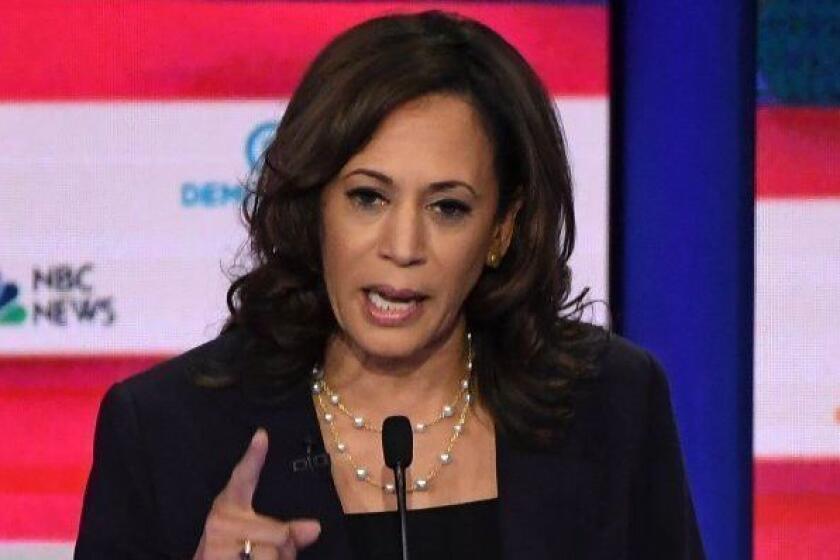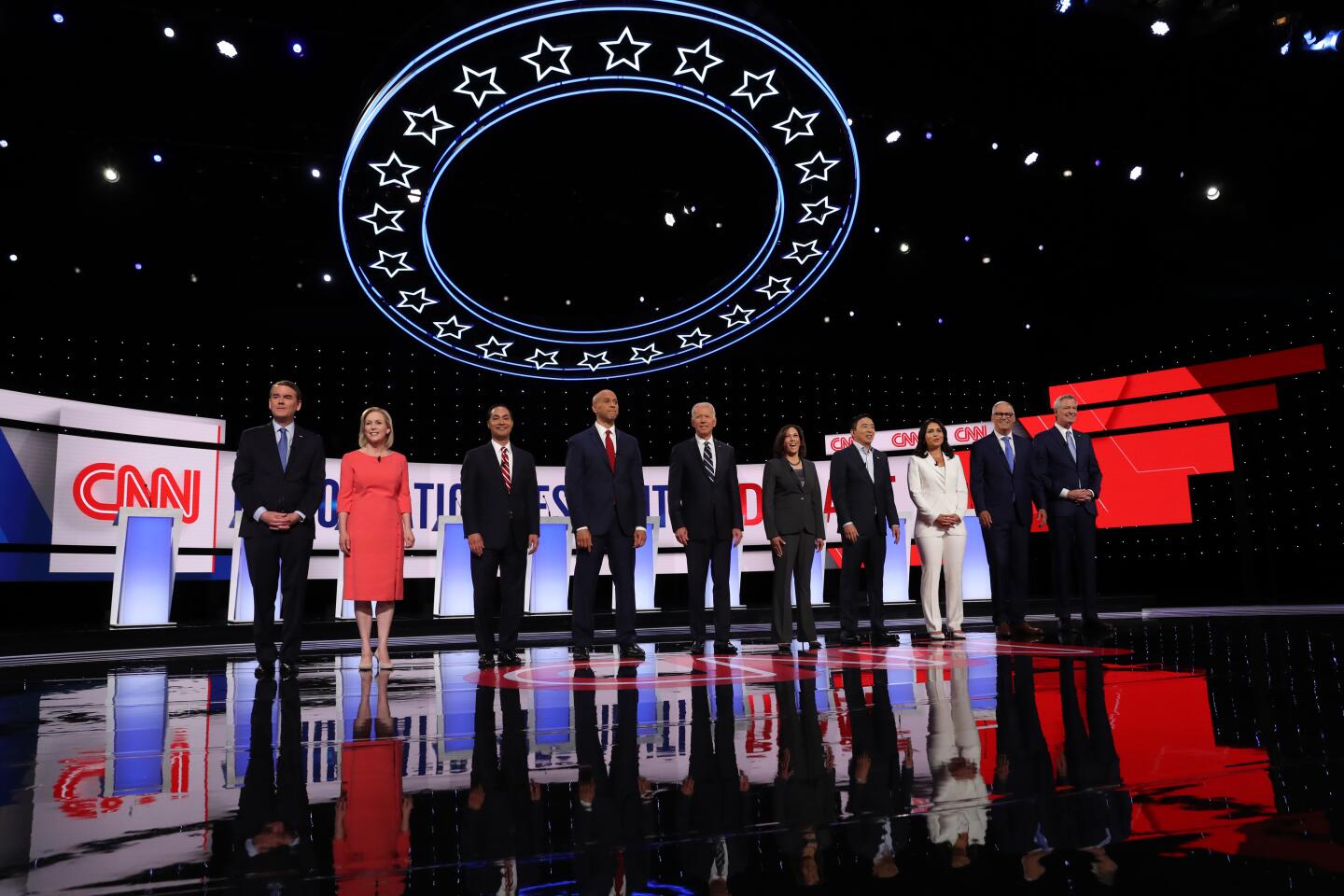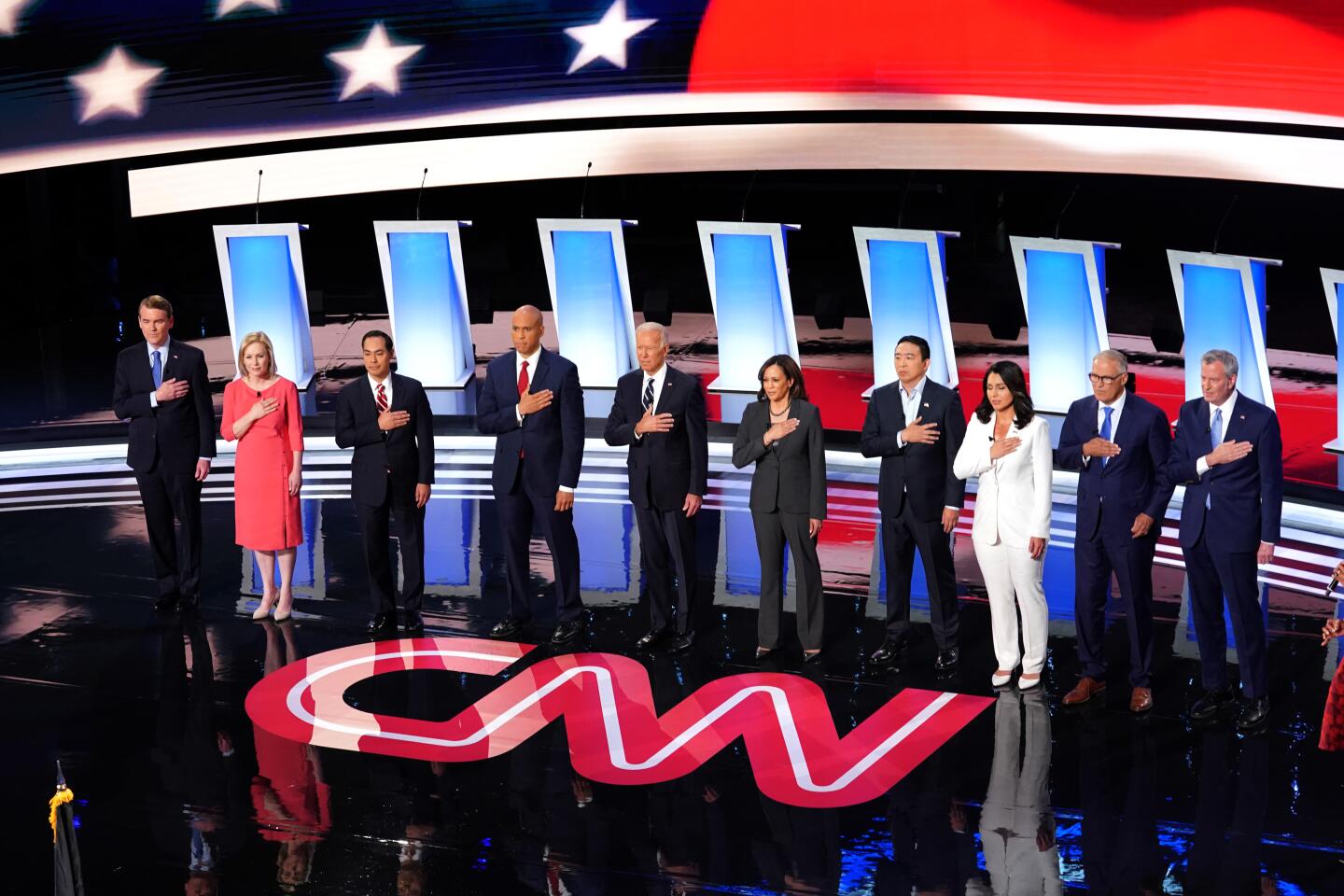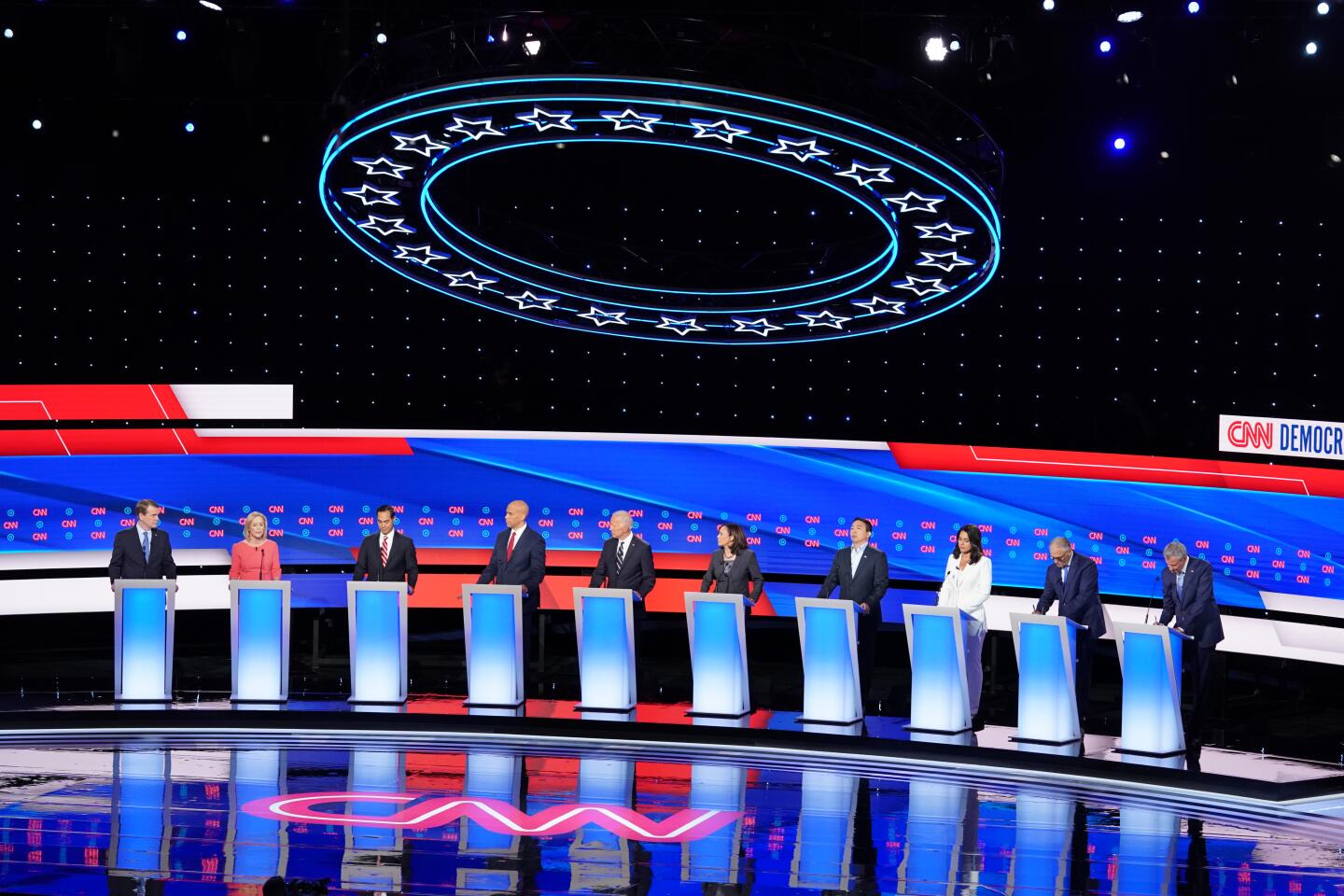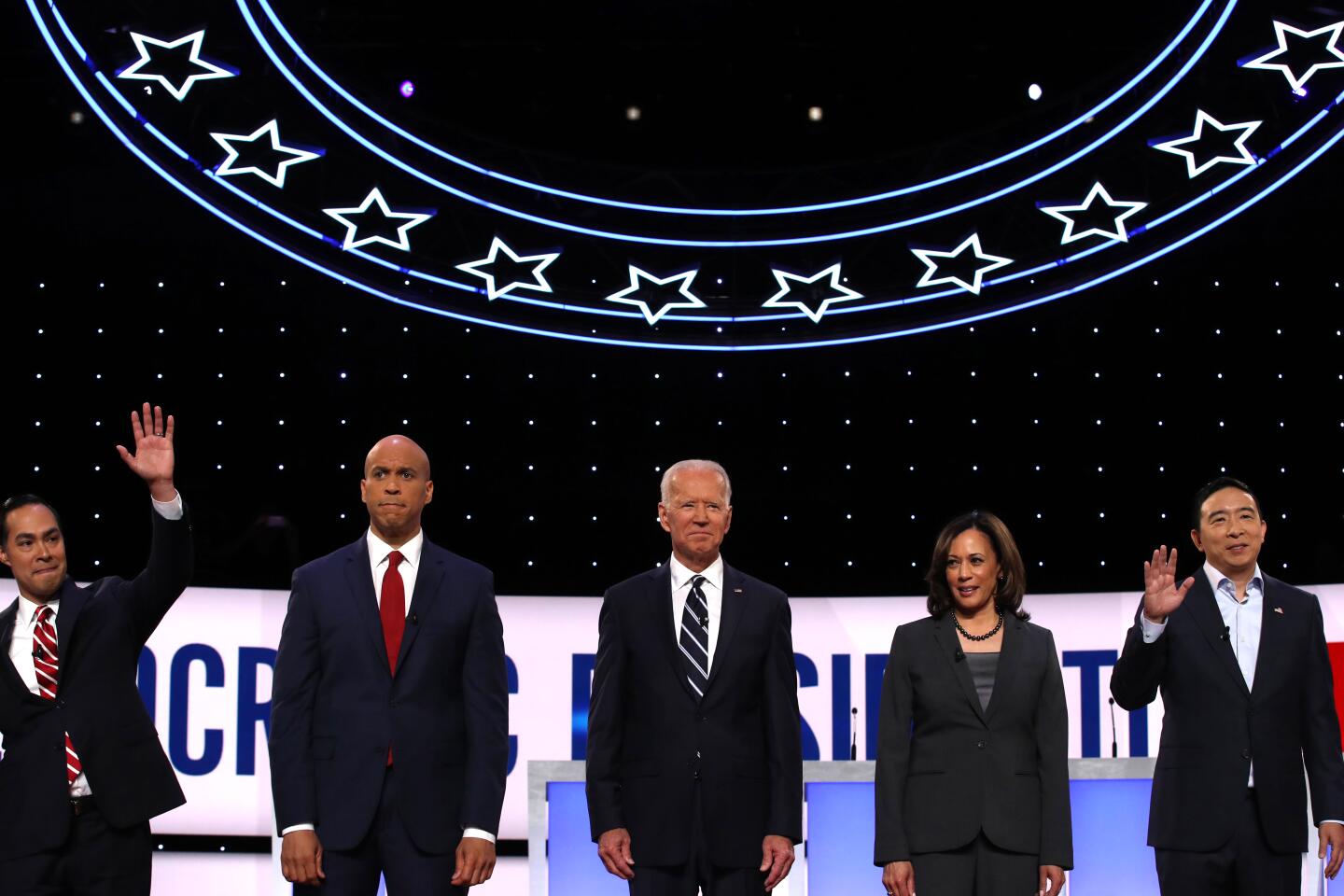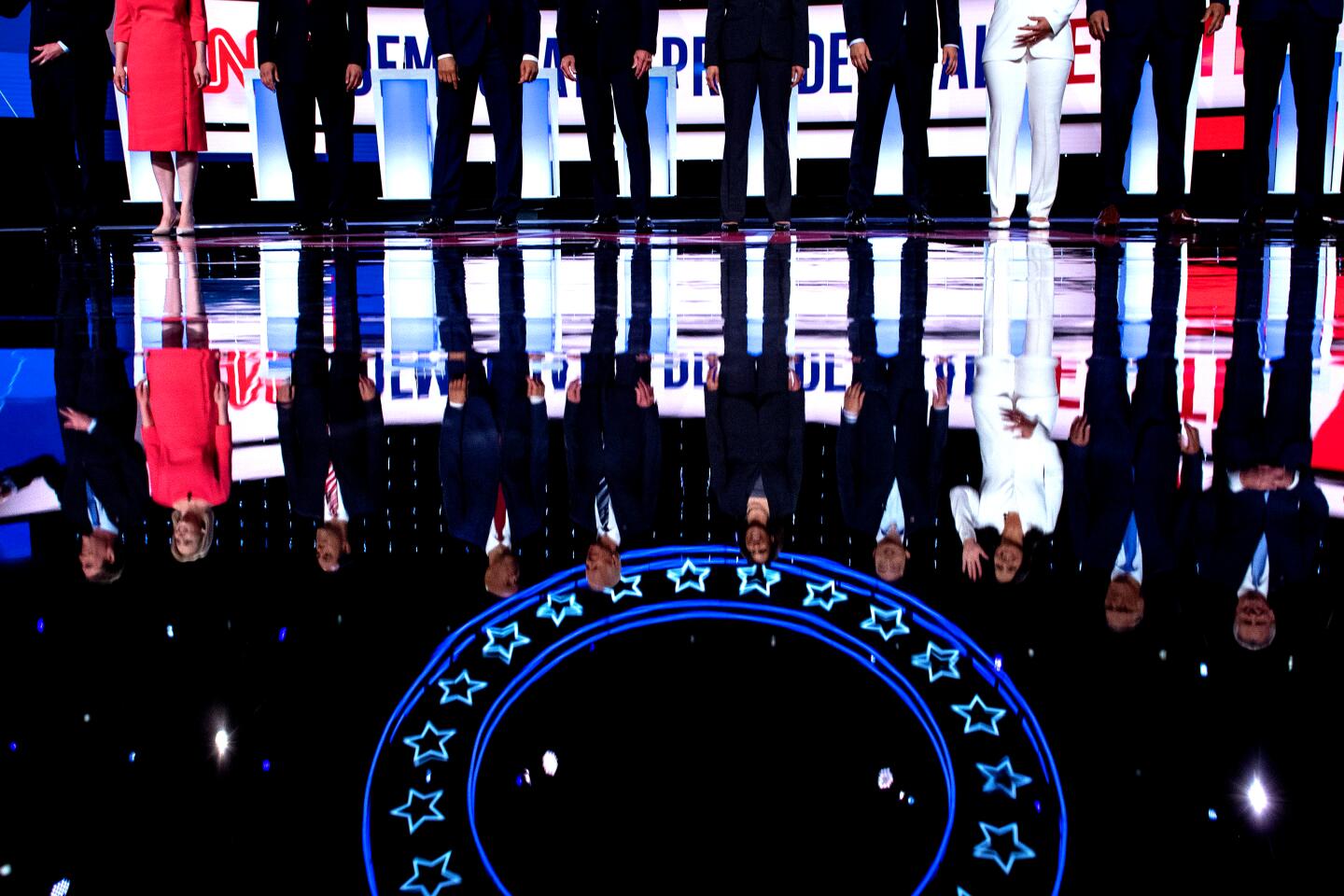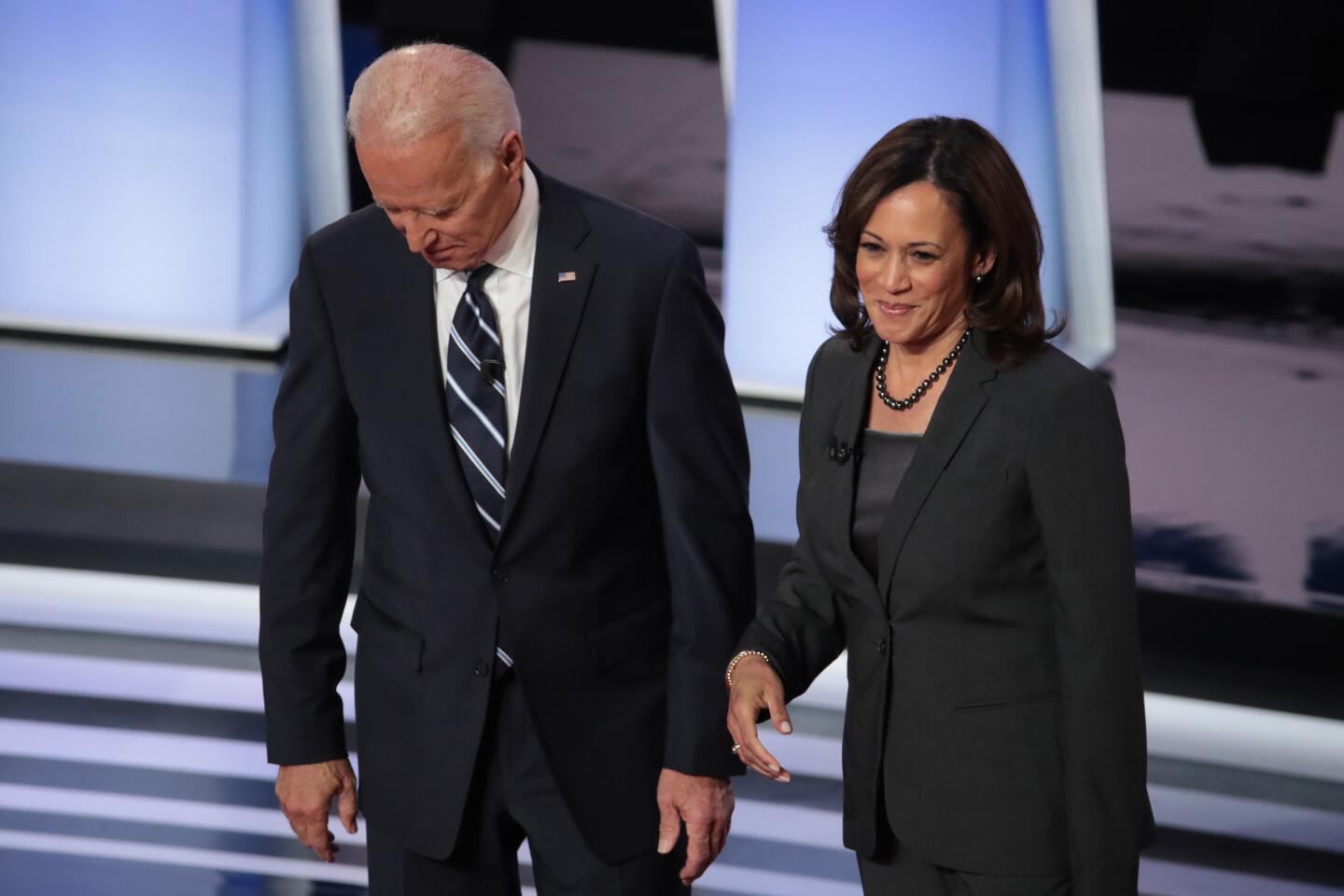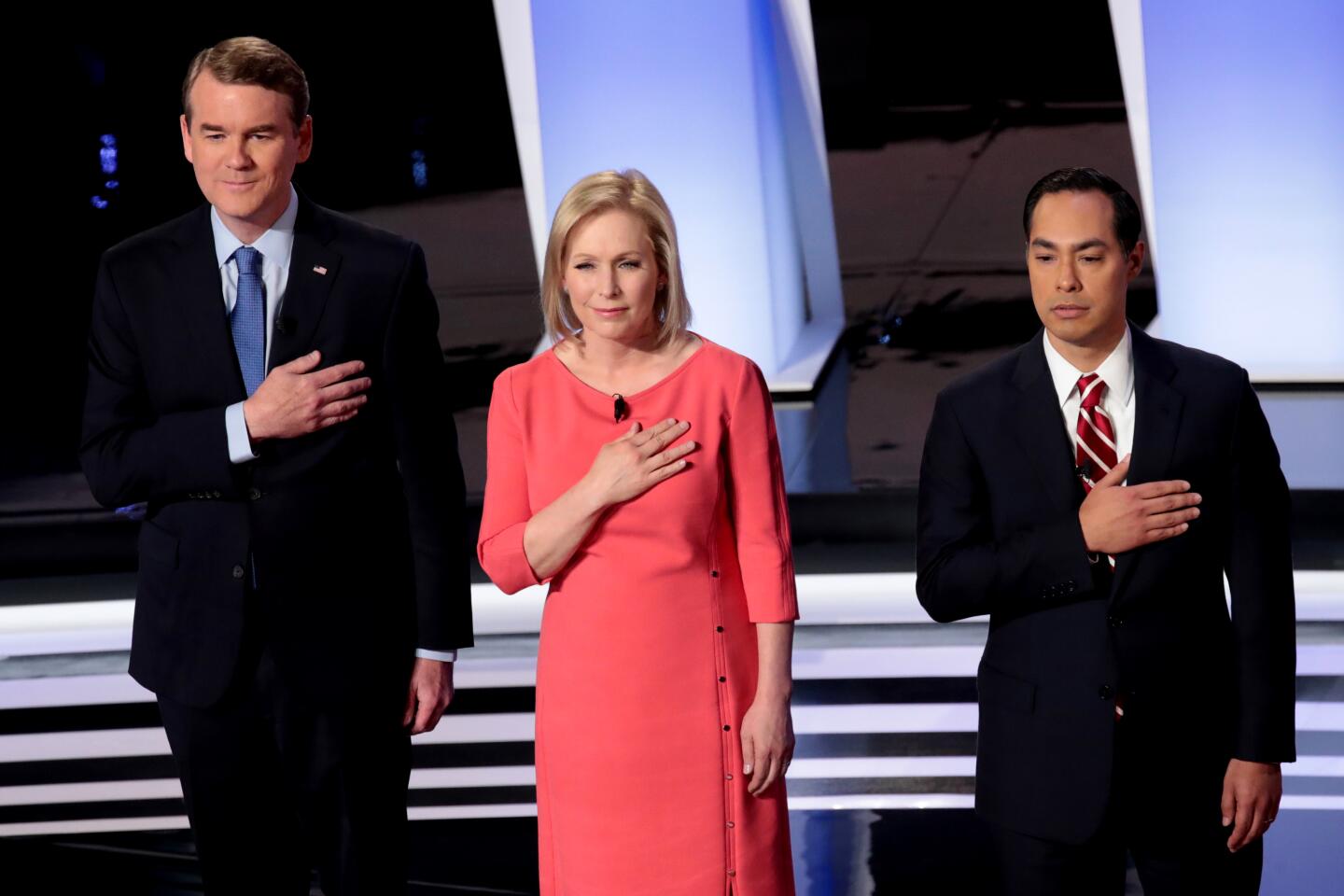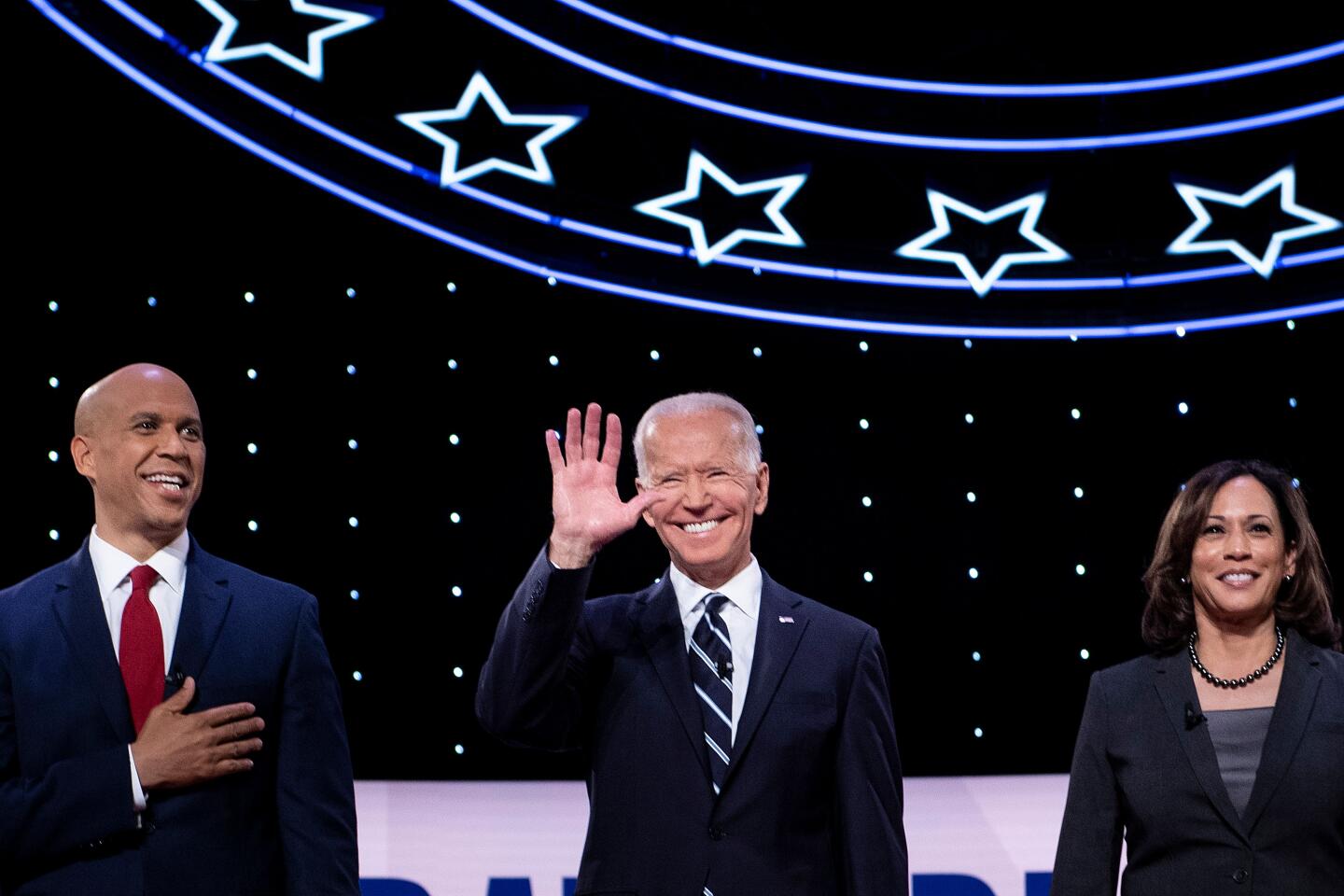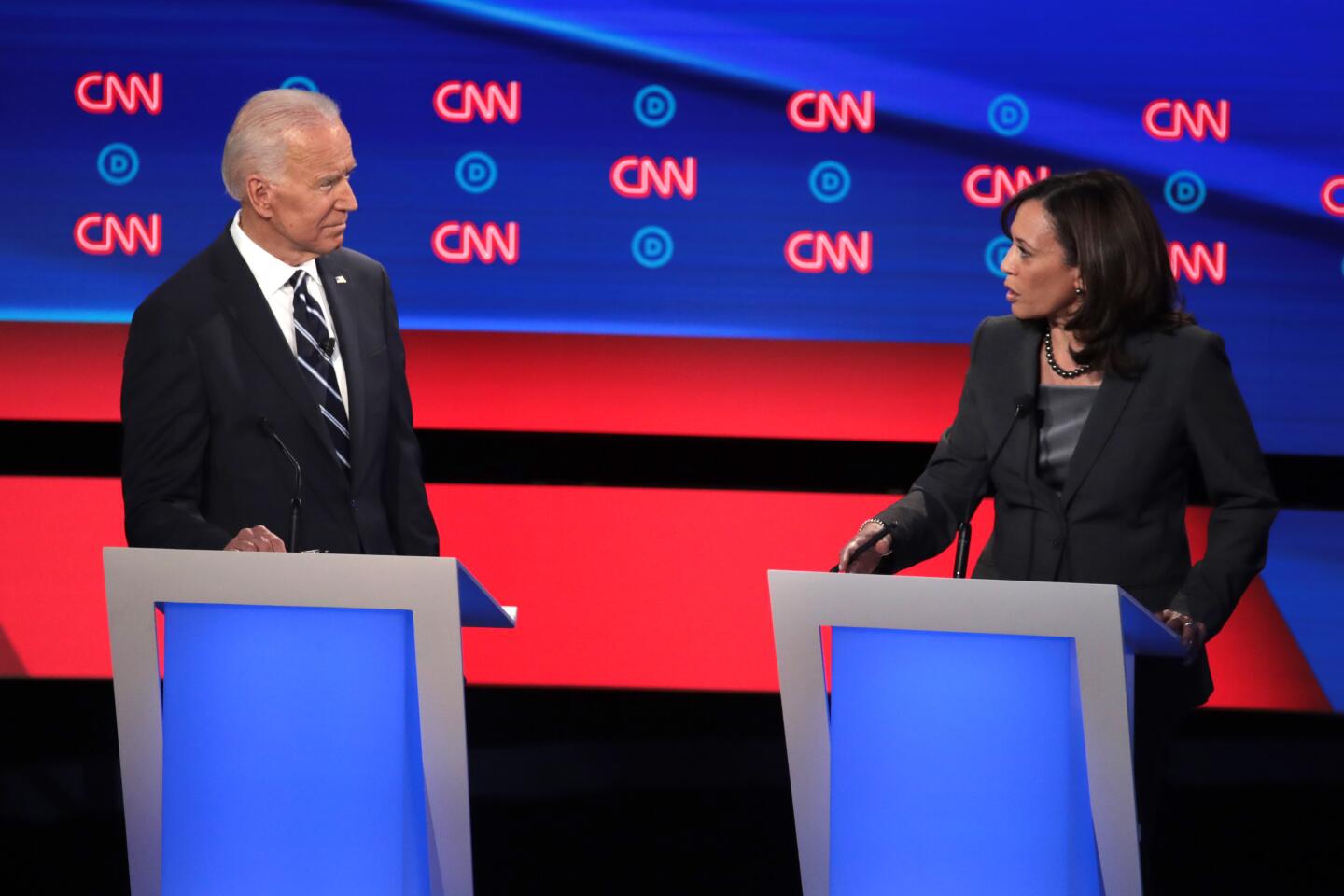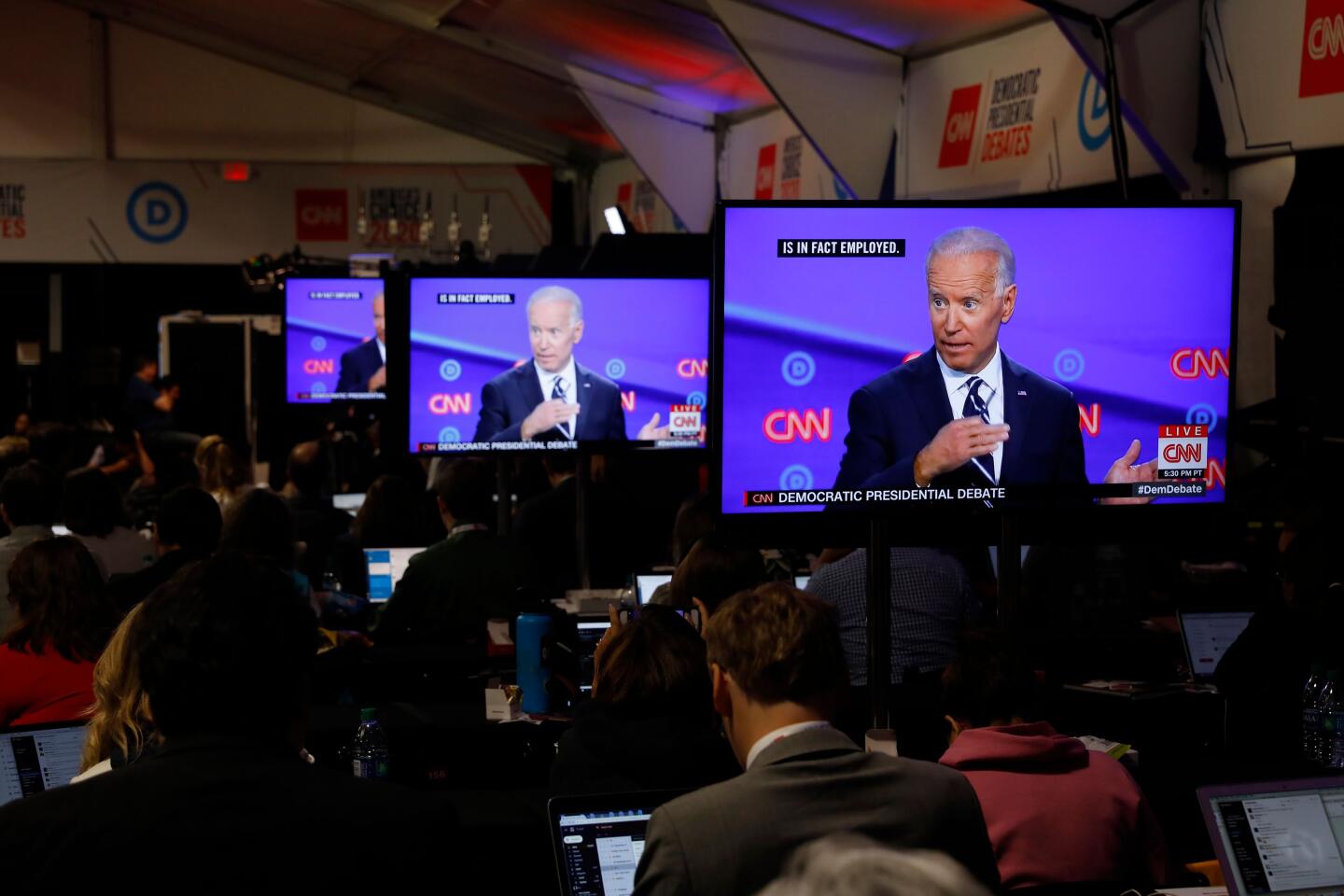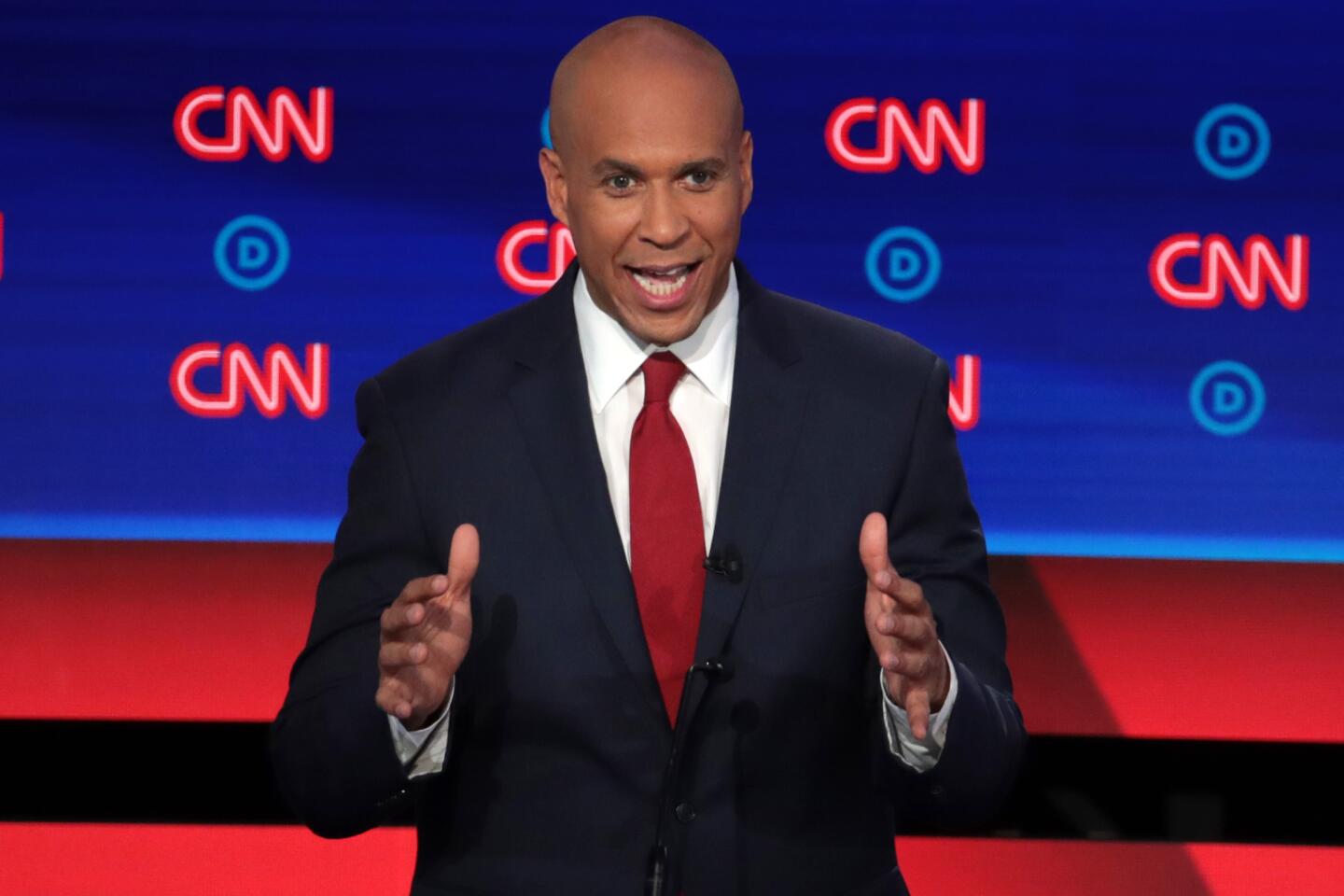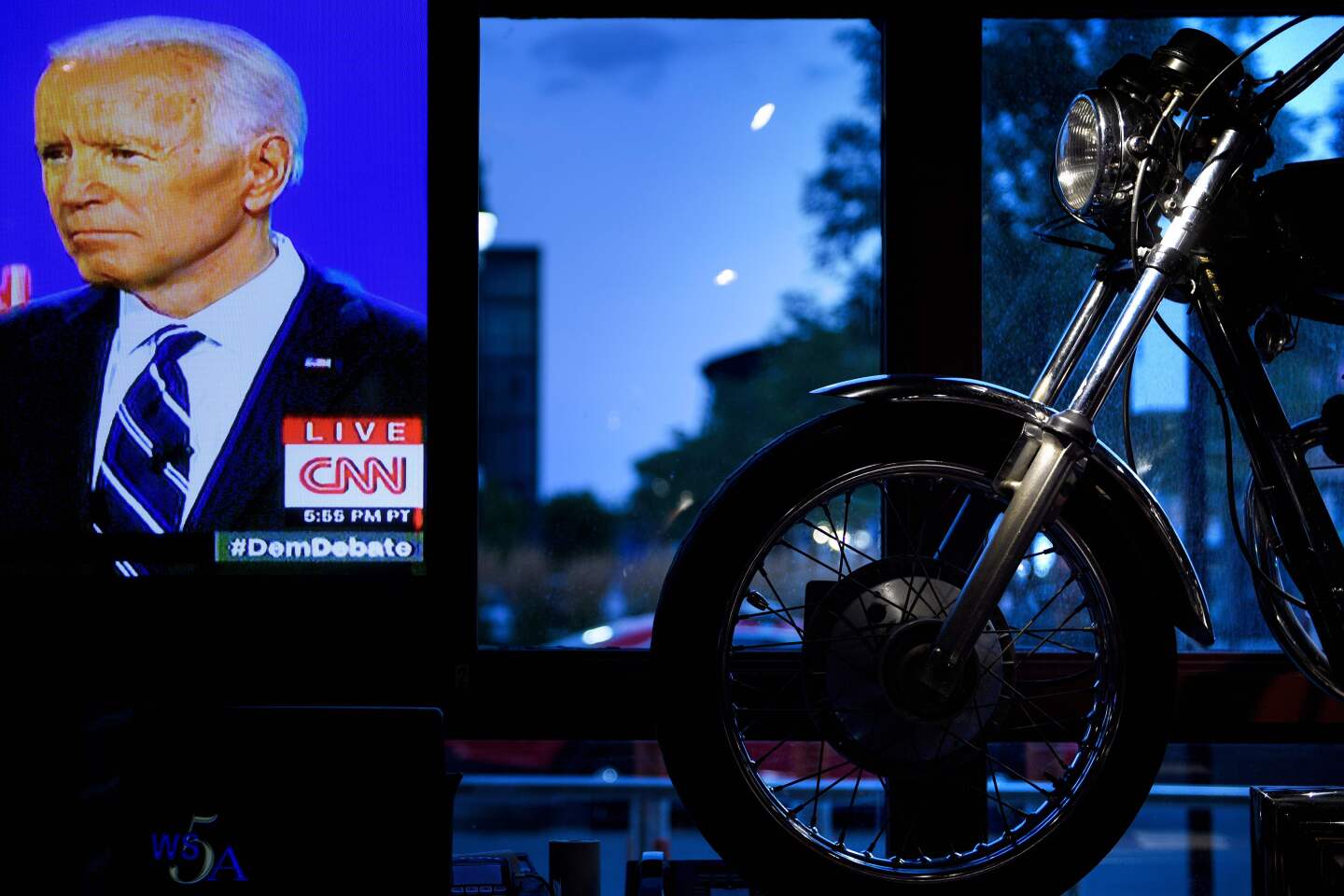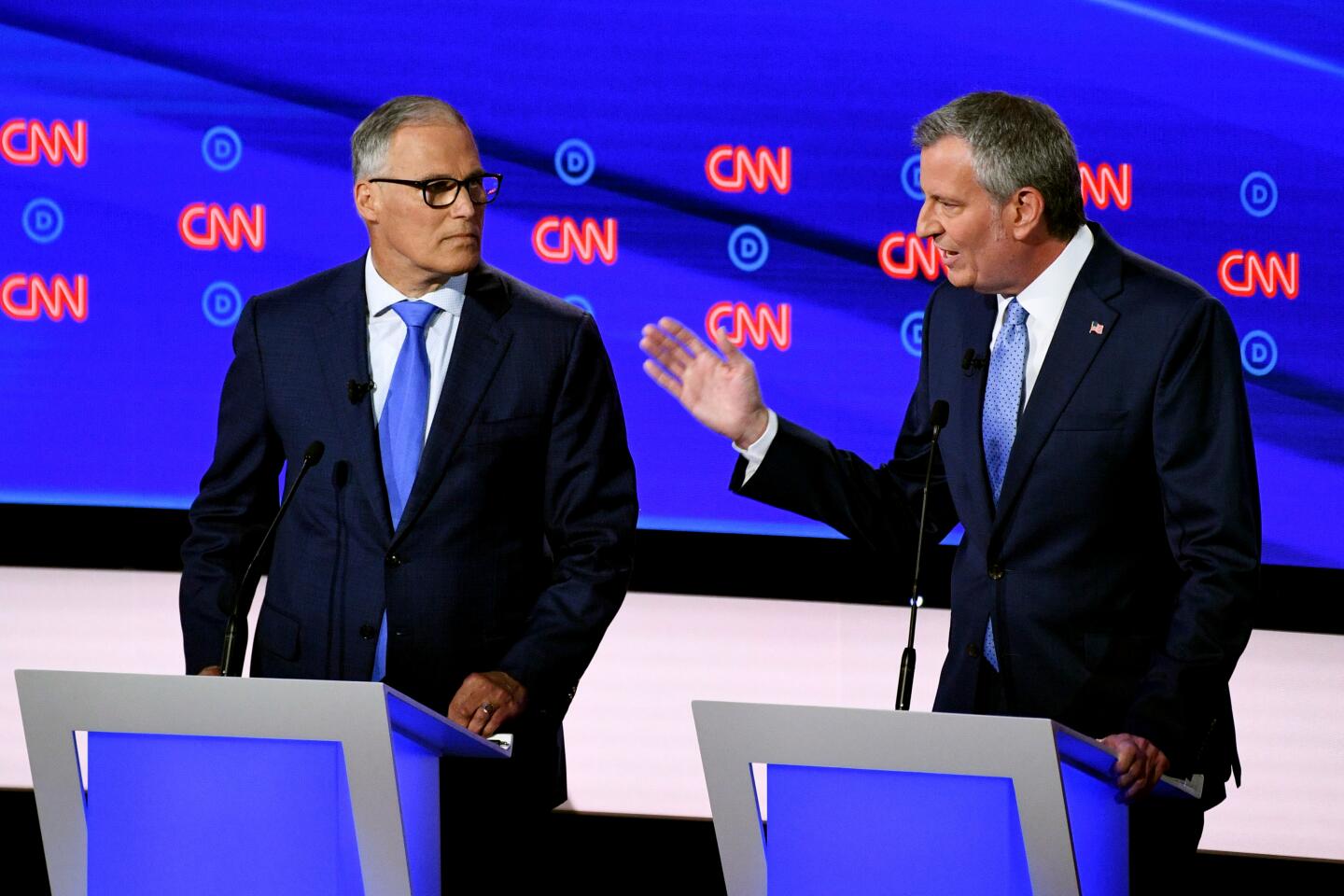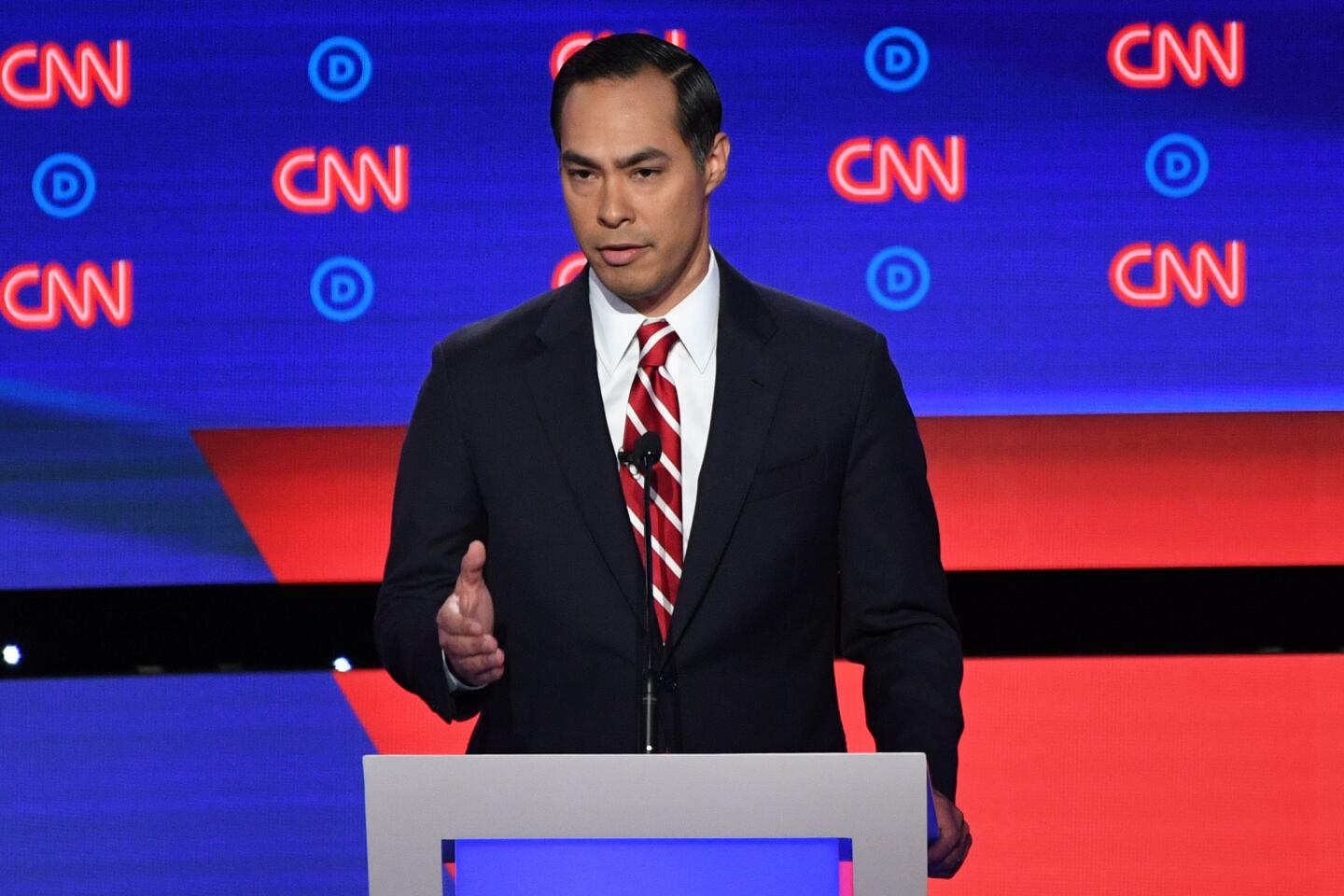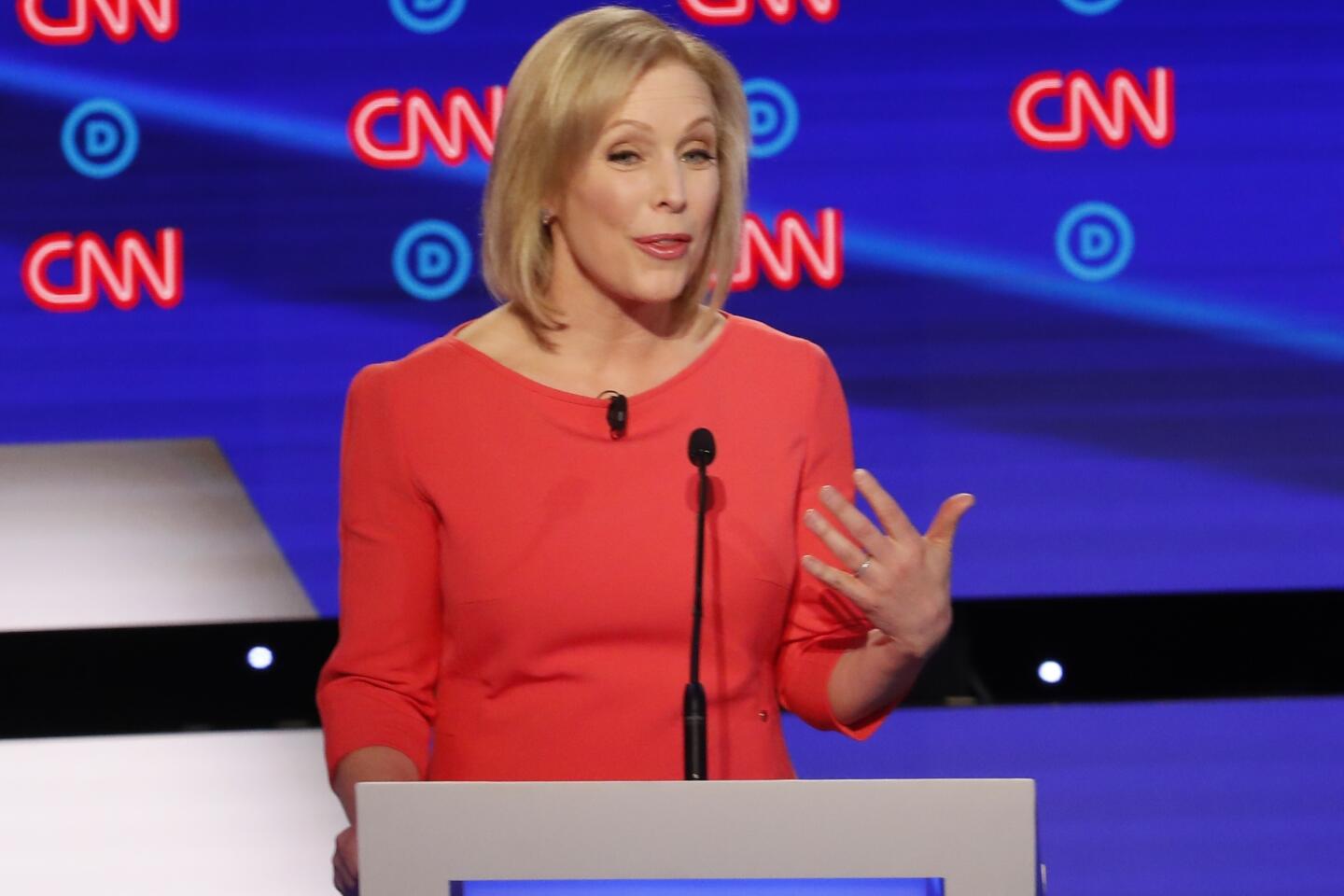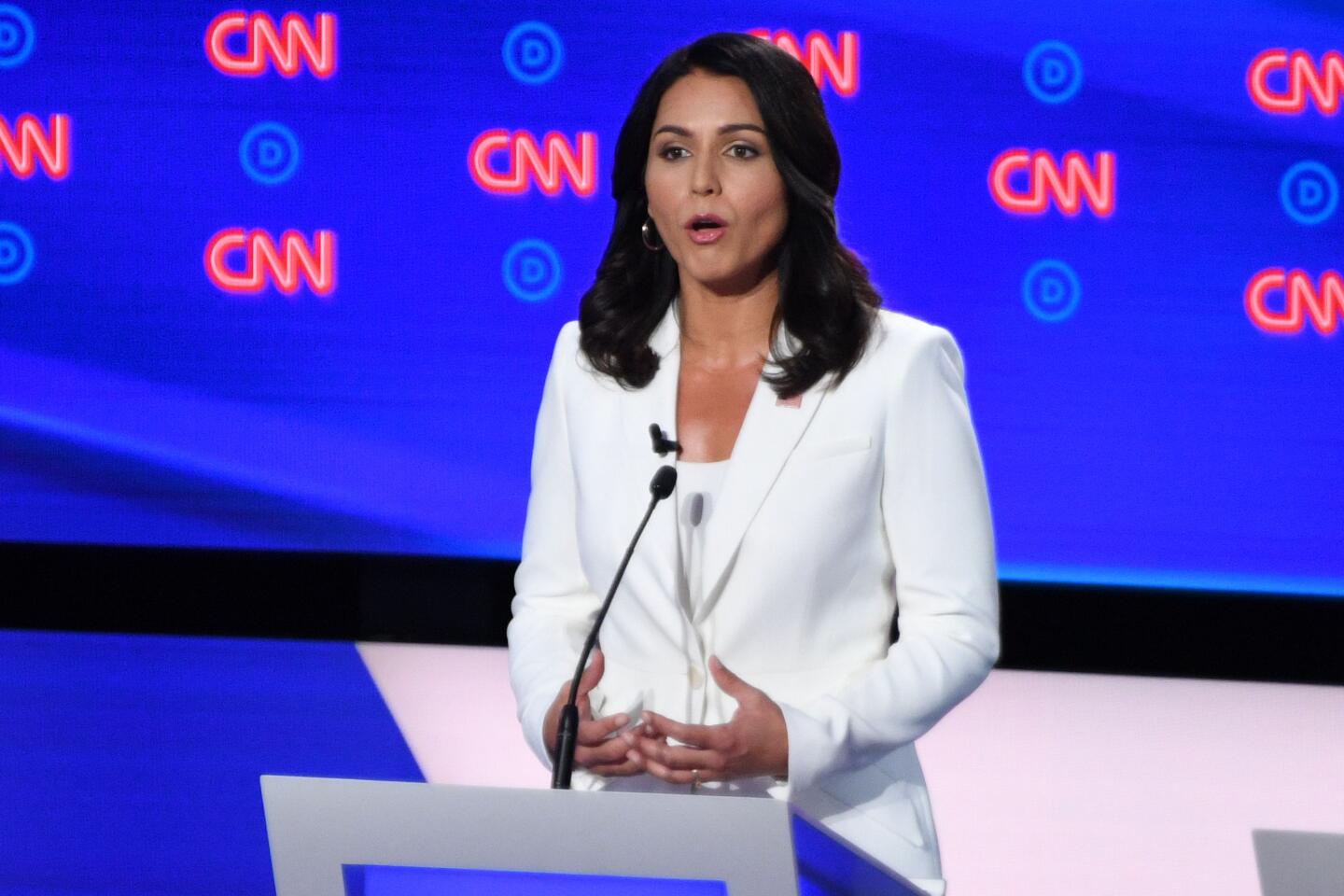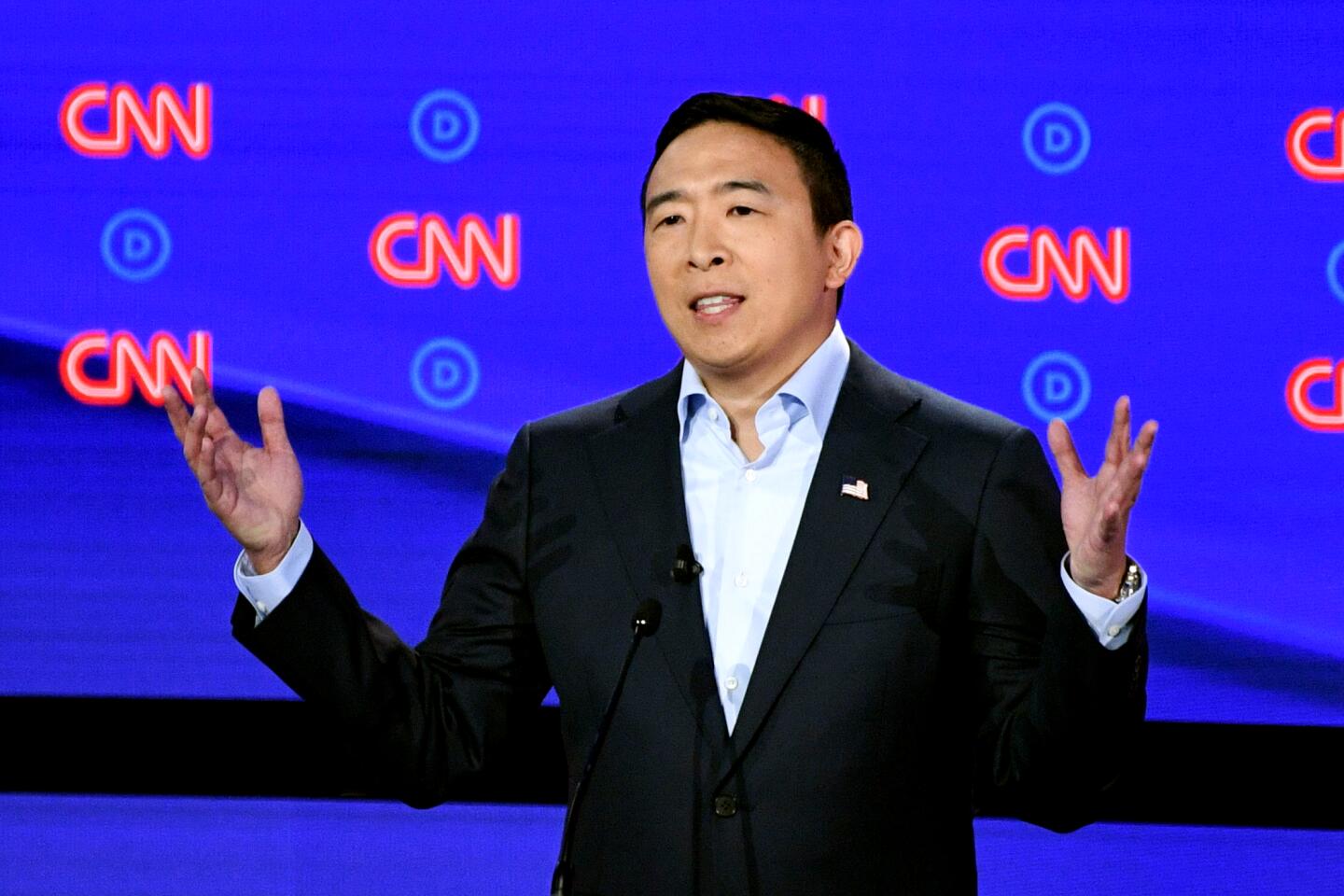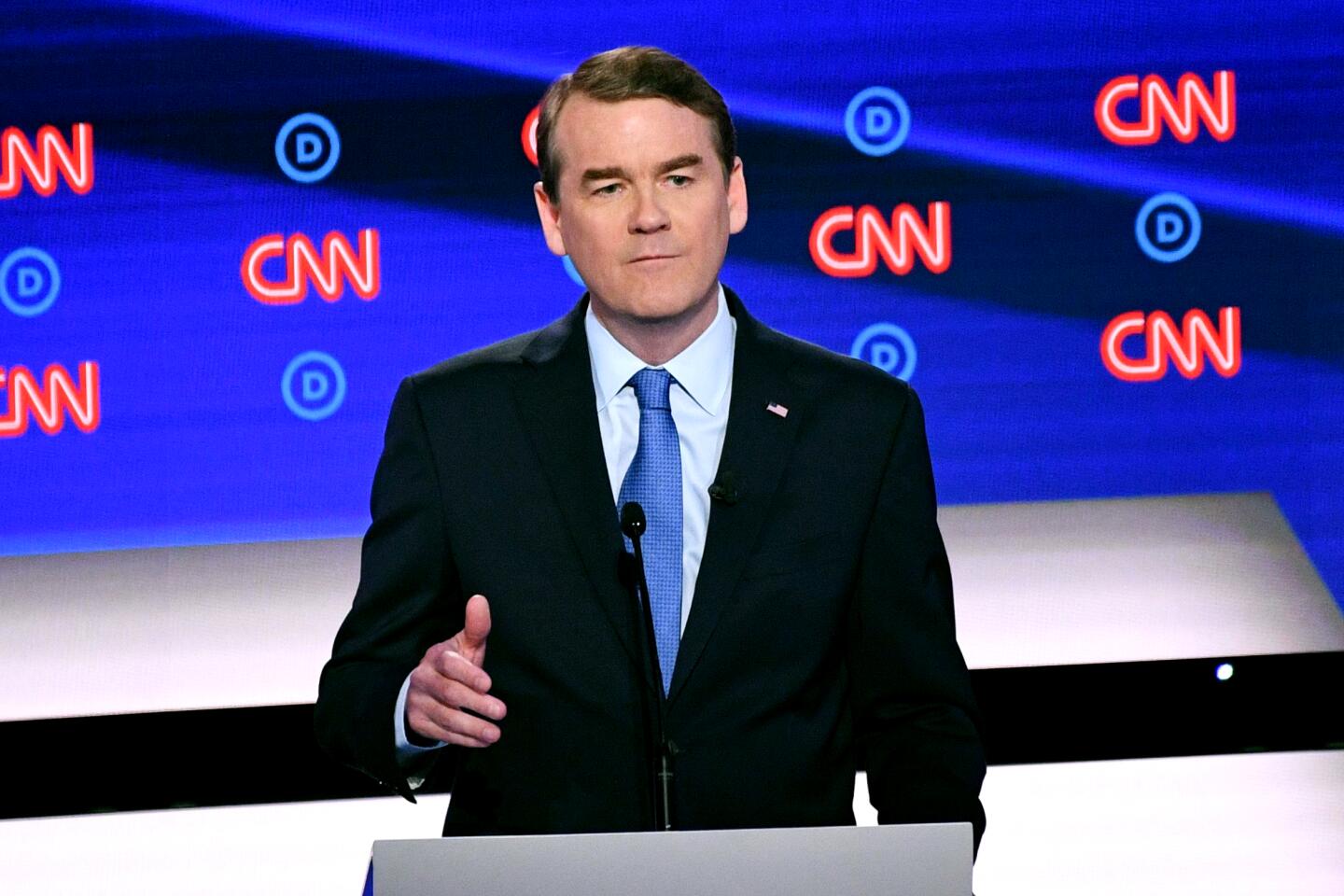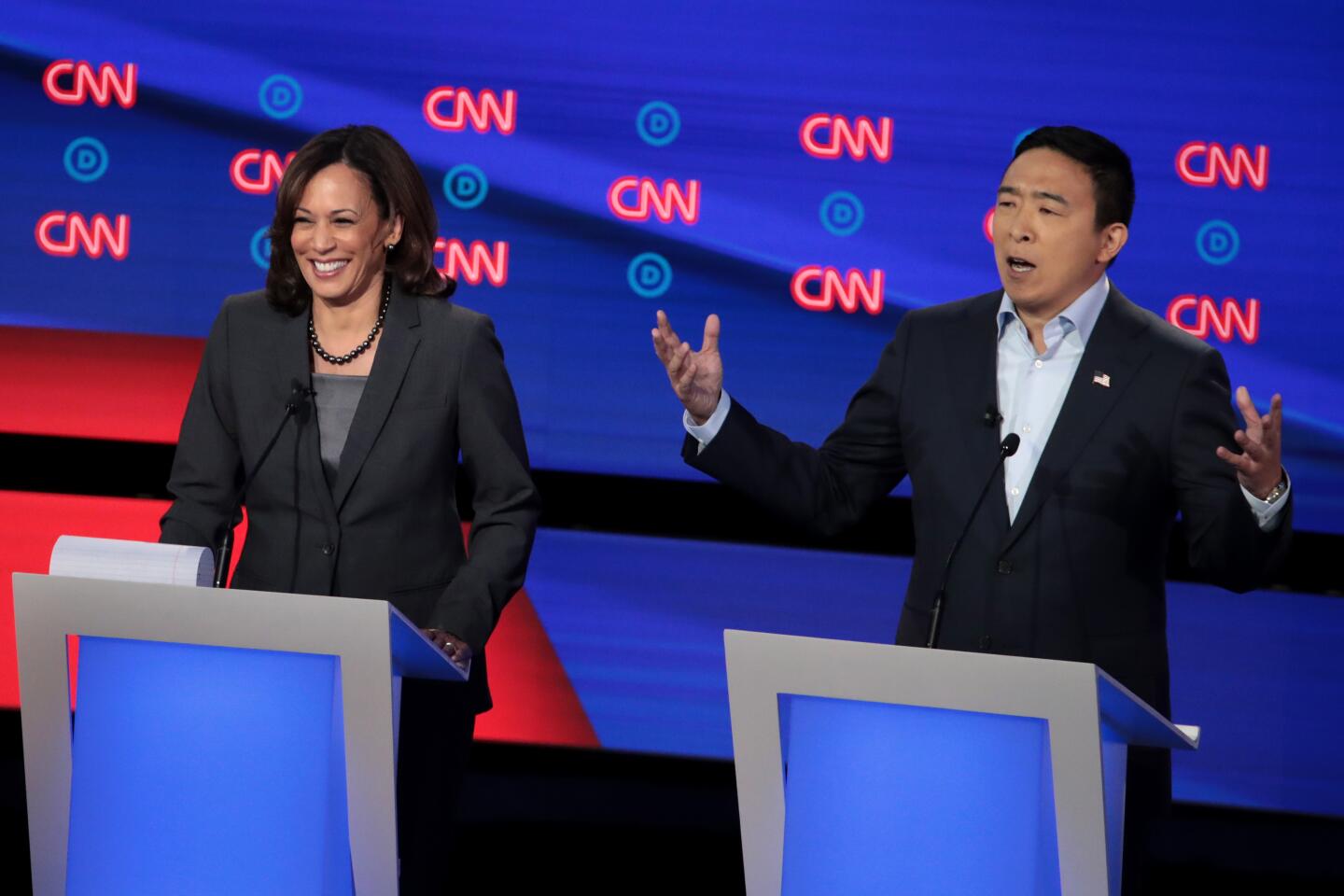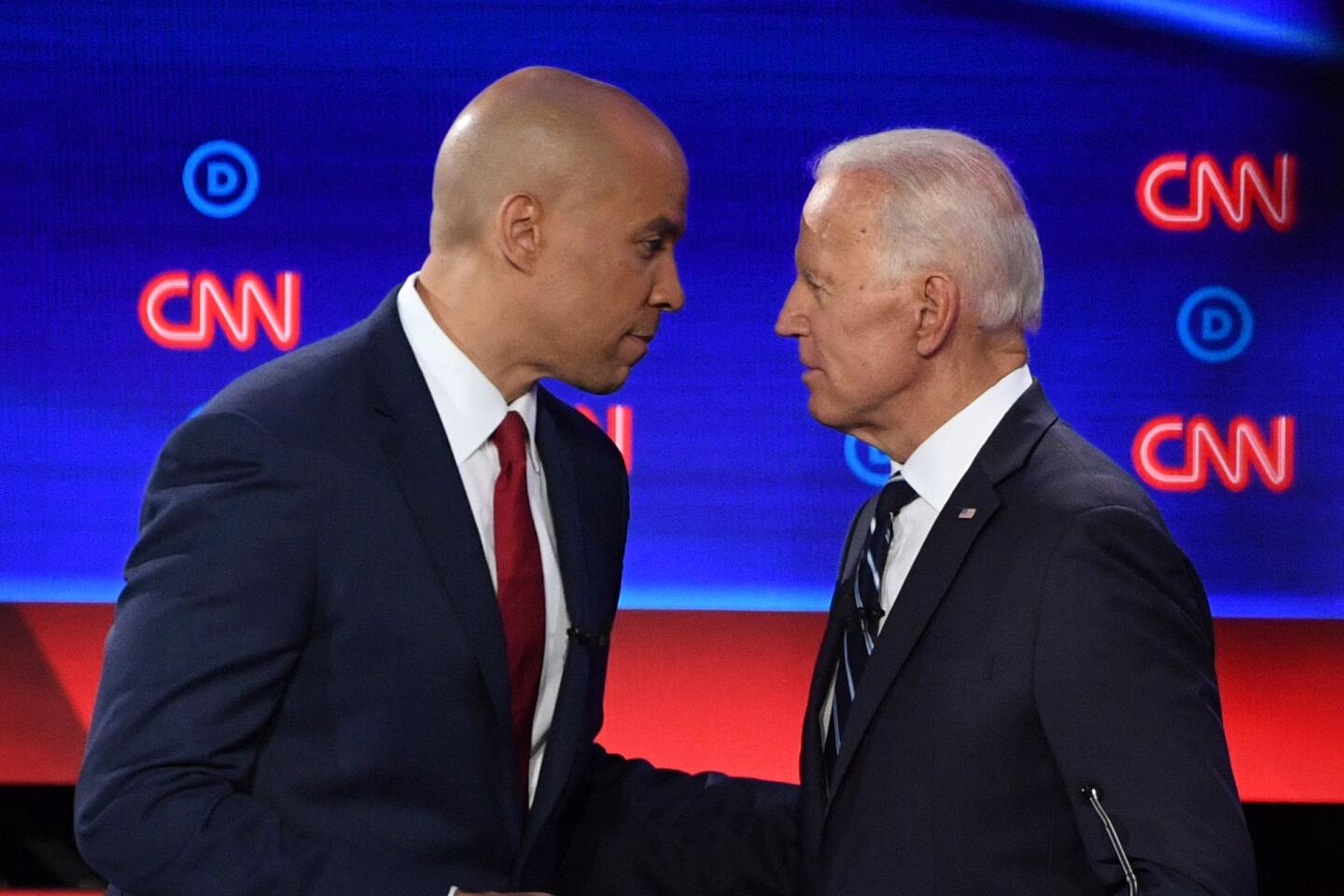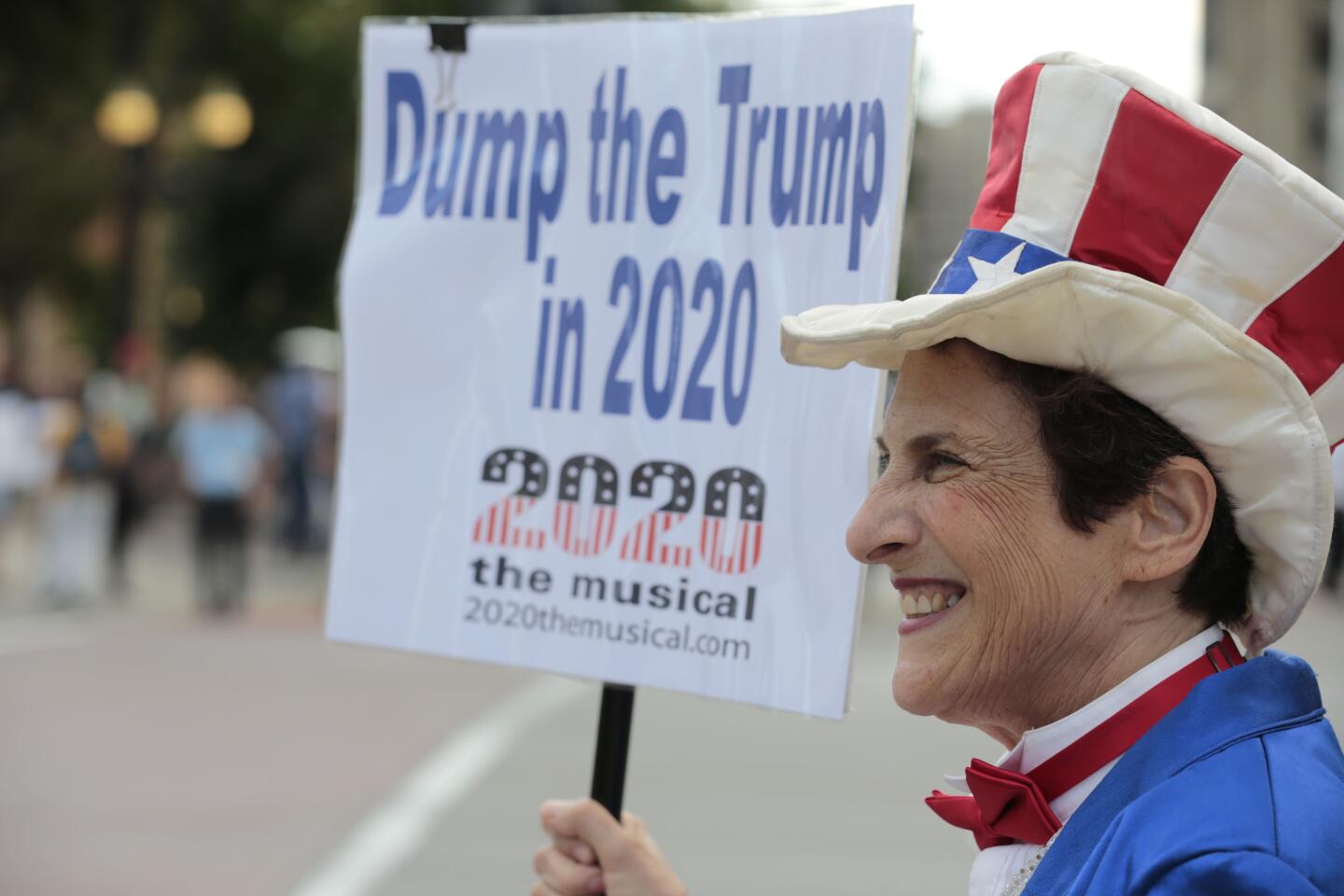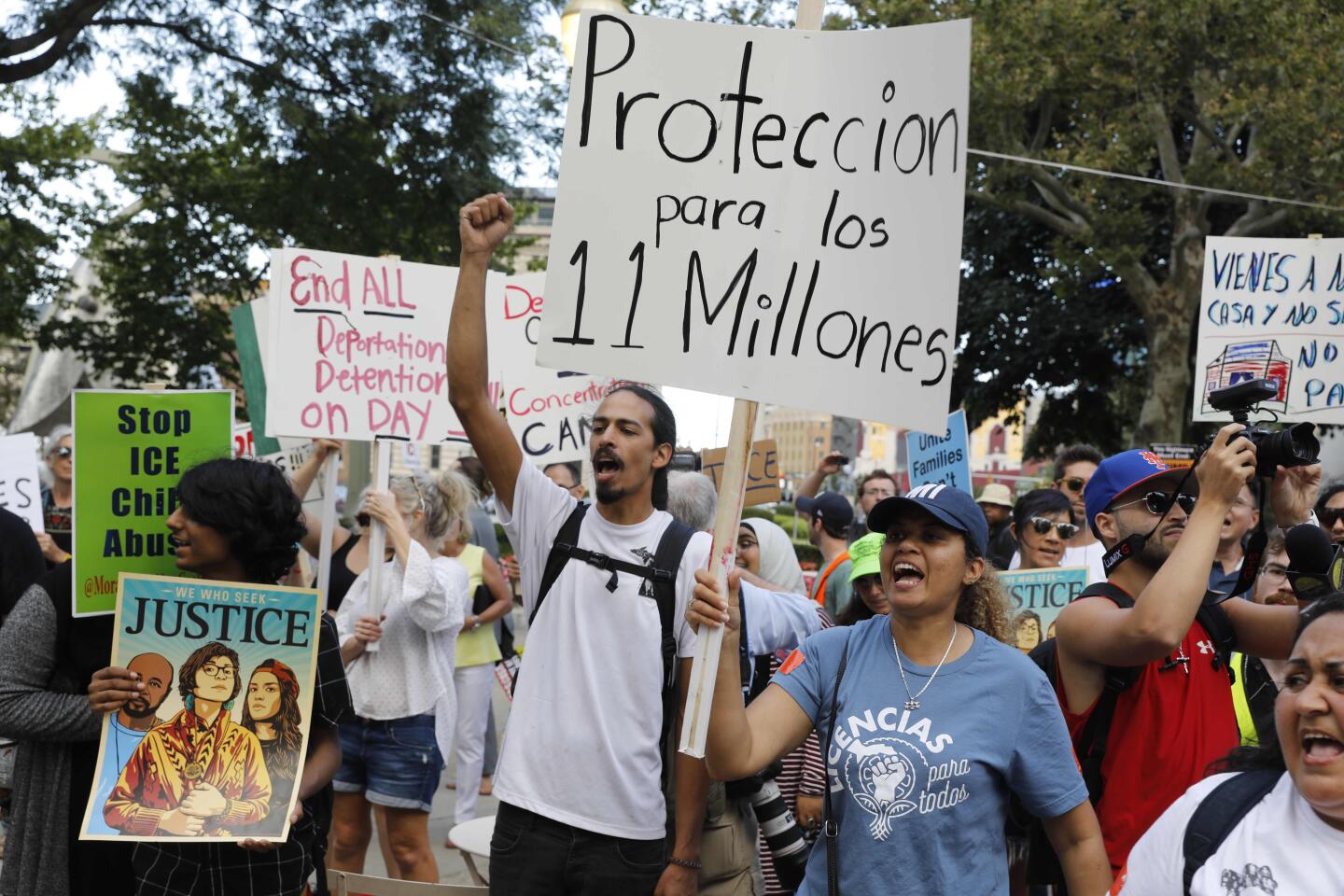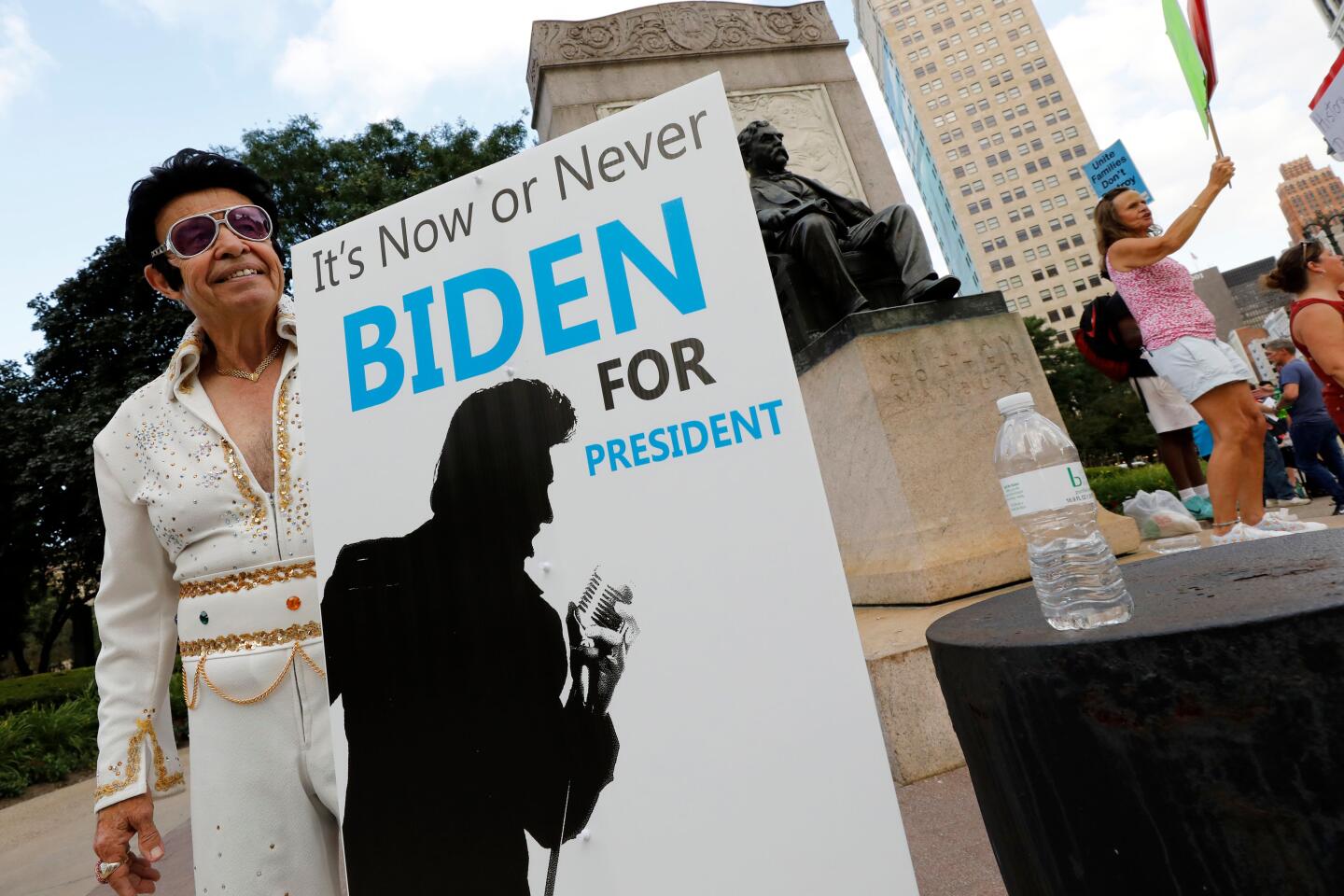At the Democratic debates, CNN set the trap. But blame the candidates for taking the bait
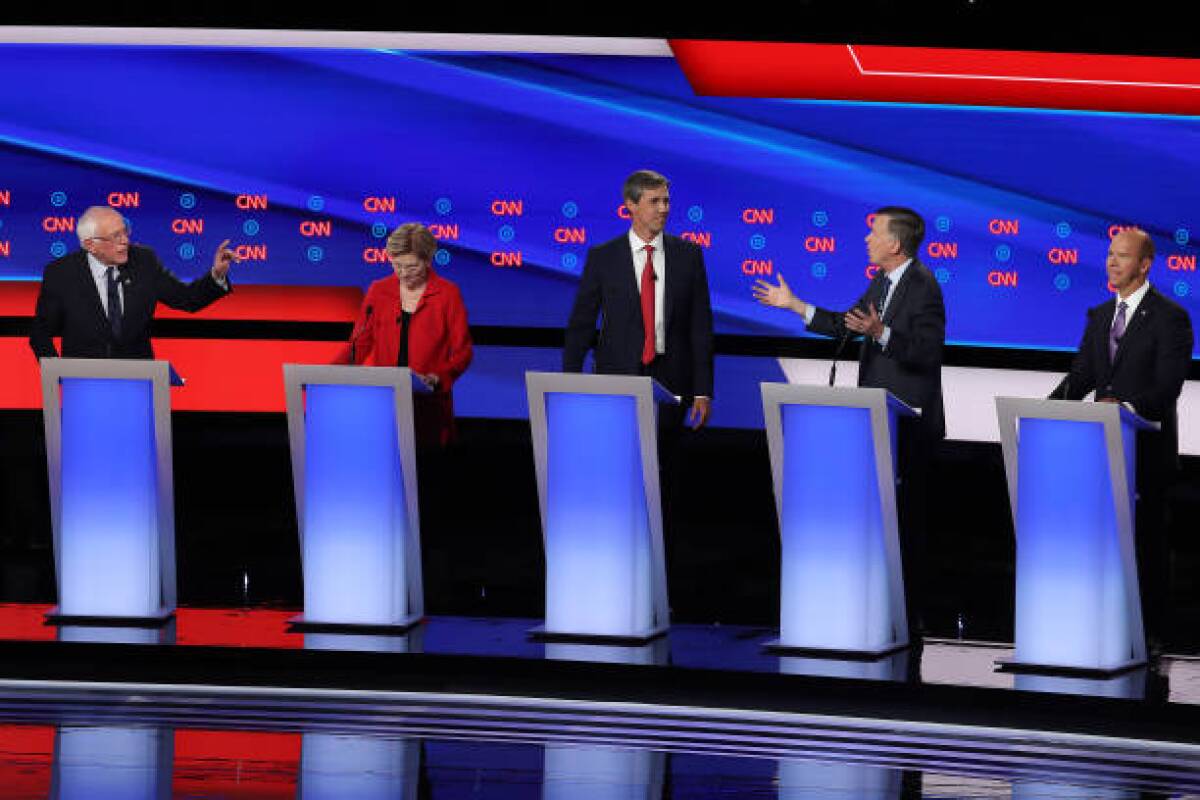
- Share via
The candidates went in fighting Trump and came out fighting one another in round two of the Democratic primary debates, where style won over substance and the quest for ratings trumped reality.
The disparity between the spectacle on stage and the actual Democratic Party — one that’s arguably more united against Trump than divided against itself — spoke to an uncertain future in American politics where most everything is in flux and the lessons of history are not applicable. This week’s debates, replete with protesters shouting at the candidates to take a more extreme (or measured) response on the issues, left viewers with a tangled mess of big ideas and minor squabbling from an over-crowded pool of presidential hopefuls — most of whom don’t stand a chance of making it to the next debate, let alone the Oval Office.
Such political theater was emblematic of a party that’s shifting to the left while still reflexively reacting to denunciations from the right and locked into an unanswerable question: “Who’s more electable, a moderate or a liberal?”
The dissonance would have made Roger Ailes proud.
After years on the defensive from GOP attacks, the Democrats spent both evenings fighting their better instincts in order to fight with each other. The spats were a far cry from the more organic sparks that flew during the first pair of debates and did little to differentiate the candidates from one another. But the melee did manage to cast a pall of uncertainty over a future election and leave voters wondering if any of the candidates are focused enough to win back the White House.
The candidates argued, interrupted and bulldozed through their allotted time during the second of two Democratic primary debates, and the moderators struggled to keep the conversation on track.
CNN was happy to exploit, if not foster, those uncertainties, even when it meant bending its own rules of engagement — 60-second answers, 30-second rebuttals, no interrupting — for more drama. As observers pointed out after each night’s festivities, moderators Jake Tapper, Dana Bash and Don Lemon pitted the crowded field of candidates against one another, manipulating the pack for maximum fireworks and minimum content.
Even before the candidates were split into two groups of 10 for Tuesday and Wednesday’s debates, “the most trusted name in news” ginned up a contentious, competitive smack-down of Kardashian proportions: The network advertised the event as a “match-up between Massachusetts Sen. Elizabeth Warren and Vermont Sen. Bernie Sanders, the two top progressives in the Democratic primary” and a “rematch of former Vice President Joe Biden and California Sen. Kamala Harris”
Tapper, Bash and Lemon stuck with the program, introducing each candidate against music and staging more akin to “Battle of the Network Stars” — or perhaps “Celebrity Death Match” — than a presidential primary debate.
But while the candidates didn’t wrestle in luchador masks or unitards in Detroit’s Fox Theatre, they did continually take the bait when moderators asked about their prior criticisms of one another’s policies, or elicited heightened responses by framing questions in red-state speak. (When Tapper asked Sen. Bernie Sanders about “Medicare for All,” a plan that means the middle class would pay more in taxes, Sanders accused the moderator of using a “Republican talking point.”)
It was a ploy, but the ploy worked. Despite having broadly similar positions on everything from climate change to immigration, candidates used the threat of rising oceans and the horror of migrant children locked in cages against one another as if they were debating “Moscow Mitch” McConnell or the white nationalist president rather than folks in their own party.
“We have to stop separating children from their parents,” said an emphatic Rep. Tulsi Gabbard, as if countering an invisible opponent who was arguing otherwise.
Former Rep. John Delaney, a moderate, continually attacked Sanders and Warren on night one for their “unrealistic” progressive agendas. Exasperated, Warren finally broke from defending her ideas and asked why anyone would run for president “just to talk about what we can’t do.”
Similarly, on night two, front-runner and former Vice President Joe Biden faced nonstop confrontation from his not-so-stiff, yet still vexing, competition. Sen. Kamala Harris and Sen. Kirsten Gillibrand mined his voting record and op-eds all the way back to the 1970s to show he was out of touch with people of color, women and essentially anyone under 70.
Biden defended himself, of course, including from one such accusation by Sen. Corey Booker. But when the elder statesman turned the tables on Booker, blaming the New Jersey politician for the racist practices of the Newark police department, the gloves came off: “There’s a saying in my community,” said Booker. “You’re dipping into the Kool-Aid and you don’t even know the flavor.”
What did social media take away from all the posturing? It reacted as it often does — by focusing on the sideshow, then running with it down a rabbit hole.
Self-help author Marianne Williamson was the top trender Tuesday night. Her lament of entrenched political corruption — “Yada, yada, yada” — and warning of “dark psychic forces” went viral. Gillibrand’s joke about needing to “Clorox the Oval Office” if she won was also a Twitter sensation, which tells you a lot about the big takeaways from the debate. (There were none.)
Entrepreneur Andrew Yang, an ancillary contestant who was given little air time on CNN’s game show, captured the mood best Wednesday in his closing statement, when he decried that focus of the debate had moved away from the greater good of the American people.
“Instead of [talking about] automation in the future, including the fact we automated away 4 million manufacturing jobs ... we’re up here with makeup on our faces and our rehearsed attack lines. Playing roles in this reality TV show. It’s one reason why we elected a reality TV star as our president.”
More to Read
The complete guide to home viewing
Get Screen Gab for everything about the TV shows and streaming movies everyone’s talking about.
You may occasionally receive promotional content from the Los Angeles Times.

